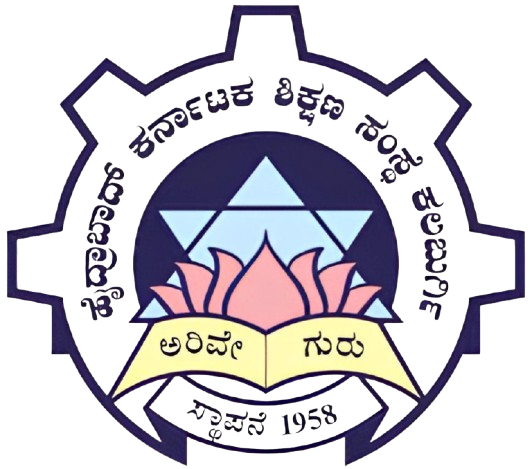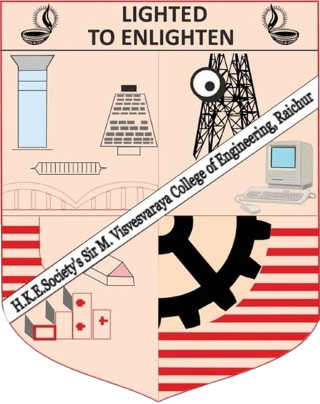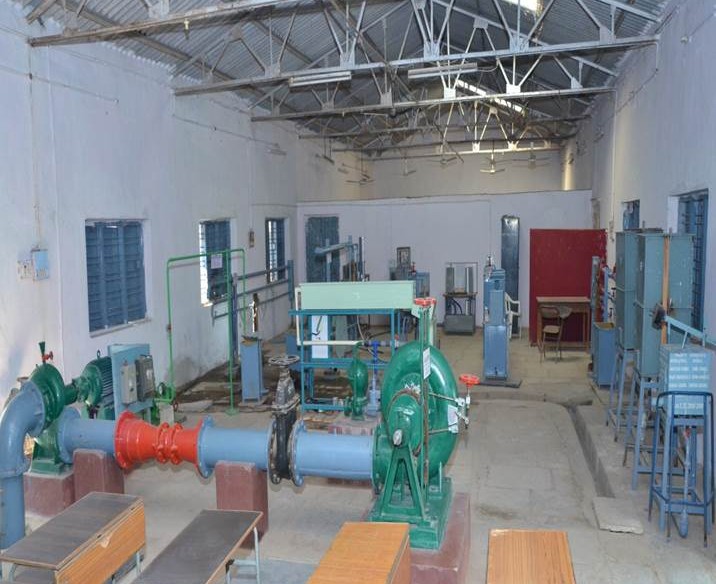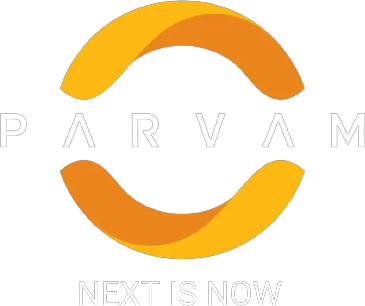
(Affiliated to VTU - Belagavi, Approved by AICTE – New Delhi, Accredited by NAAC)
Yeramarus Camp, Raichur – 584135

Department of Civil Engineering was started in the year 1979 with an intake of 40 under
"Karnataka University, Dharwad". In the year 1984, the intake was increased to 60 with
change in affiliating university as "Gulbarga University, Gulbarga". in the year 1998,
the college got affiliated to "Visvesvaraya Technological University, Belgaum". Till
date 37 batches of students have passed out from the branch.
The Student Faculty Ratio is
Student:Faculty → 73:07

PO1 (Engineering knowledge) : Apply the knowledge of mathematics, science, engineering fundamentals, and an engineering specialization to the solution of complex engineering problems
PO2 (Problem analysis) : Identify, formulate, review research literature, and analyze complex engineering problems reaching substantiated conclusions using first principles of mathematics, natural sciences, and engineering sciences.
Enclosed file for Program Outcomes: Download here
PSO1: Familiarize civil engineering components and systems.
PSO2: Conduct experiments, analyze, design, and interpret data.
PSO3: Solve problems in Structural, Construction Management, Hydraulics, Geotechnical, Transportation, and Environmental Engineering.
PSO4: Function effectively in multi-disciplinary teams.
| Course Name | Course Code | CO | Description |
|---|---|---|---|
| Transform Calculus, Fourier Series and Numerical Techniques | 21MAT31 | CO1 | To solve ordinary differential equations using Laplace transform. |
| CO2 | Demonstrate Fourier series to study the behaviour of periodic functions and their applications. | ||
| CO3 | Use Fourier transforms to analyze continuous-time signals and apply Z-Transform techniques. | ||
| CO4 | Solve mathematical models using partial differential equations. | ||
| CO5 | Determine extremals of functionals using calculus of variations. | ||
| Geodetic Engineering | 21CV32 | CO1 | Possess knowledge of fluid properties and fluid continuum. |
| CO2 | Compute and solve hydrostatics problems. | ||
| CO3 | Apply mathematics to represent kinematic fluid concepts. | ||
| CO4 | Apply fundamental laws of fluid mechanics and Bernoulli’s principle. | ||
| CO5 | Compute discharge through pipes and weirs. | ||
| Strength of Materials | 21CV33 | CO1 | Understand fundamental principles of geodetics. |
| CO2 | Measure vertical and horizontal angles for survey problems. | ||
| CO3 | Process and analyze geodetic data for surveys. | ||
| CO4 | Compute areas and volumes using spatial data. | ||
| CO5 | Perform arithmetic and logical operations on survey data. | ||
| Earth Resources and Engineering | 21CV34 | CO1 | Apply geological knowledge in Civil Engineering. |
| CO2 | Utilize earth materials like minerals and rocks in civil practices. | ||
| CO3 | Analyze natural disasters and mitigation methods. | ||
| CO4 | Assess geological tools for groundwater and resource estimation. | ||
| CO5 | Apply and assess building materials in construction. | ||
| Computer Aided Building Planning and Drawing | 21CVL35 | CO1 | Select suitable materials and construction techniques. |
| CO2 | Adopt suitable repair and maintenance work. | ||
| CO3 | Plan and design buildings per given requirements. | ||
| Personality Development and Soft Skills (AEC) | 21CV383 | CO1 | Reproduce mathematical and engineering knowledge for mechanical stress analysis. |
| CO2 | Identify and solve structural engineering problems. | ||
| CO3 | Evaluate engineering solutions' impact on society. | ||
| Surveying | 17CVL38 | CO1 | Apply principles of engineering surveying. |
| CO2 | Comprehend field procedures for surveyors. | ||
| CO3 | Use surveying techniques and instruments. |
No faculty found for this department.
The Department of Civil Engineering is well-equipped with modern infrastructure to support academic and research activities. It has eight advanced laboratories catering to different domains of civil engineering. The department houses more than 25 dual-core i3 computer systems connected through LAN and WiFi, providing seamless access to software and online resources.In addition to licensed and open-source application software, the department offers high-end computing and reprographic facilities for students and faculty. All laboratories are secured with CCTV surveillance and equipped with First Aid kits to ensure safety. Key highlights of the infrastructure include:

Our infrastructure includes modern resources, tools, and smart learning facilities to support students and faculty.
Copyright © 2025, Sir M. Visvesvaraya College of Engineering, Raichur. All rights reserved.
Developed by
 ParvaM
ParvaM